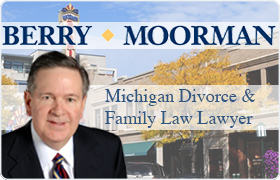Pontiac Divorce & Family Law Lawyer, Michigan
Sponsored Law Firm
-
 x
x

Click For More Info:
-
Berry • Moorman
255 E. Brown Street Suite 320 Birmingham, MI 48009 » view mapDivorce, Alimony, Child Support, Custody Professional Corporation | Attorneys at Law
Whether you are an individual or large publicly held corporation, our attorneys are dedicated to delivering skilled legal counsel and exceptional service to our clients.
800-929-4710  John J. Schrot Jr. Birmingham, MI
John J. Schrot Jr. Birmingham, MIAttorney At Law - MI, 1977
Michigan State University, J.D. - 1977
 News & Publications
News & PublicationsClick here for links to the latest news and publications from our practice.
Dareth Dawn Wilson
✓ VERIFIEDDivorce & Family Law, Tax, Divorce, Child Custody, Estate
Dareth Wilson is a practicing attorney serving Rochester, MI and the surrounding areas.
Brian Witus
Business Organization, Family Law, Securities, Dispute Resolution
Status: In Good Standing
FREE CONSULTATION
CONTACTFREE CONSULTATION
CONTACTDiana Brown
Family Law, Dispute Resolution, Collaborative Law, Child Support
Status: In Good Standing
FREE CONSULTATION
CONTACTTracy L. Barbagiovanni
Family Law, Banking & Finance, Government Agencies, Construction
Status: In Good Standing
Alan S. Wortman
Landlord-Tenant, Immigration, Divorce & Family Law, Criminal
Status: In Good Standing Licensed: 40 Years
Alan F. Giles
Employment, Divorce & Family Law, Accident & Injury
Status: In Good Standing Licensed: 43 Years


 John J. Schrot Jr. Birmingham, MI
John J. Schrot Jr. Birmingham, MI News & Publications
News & Publications

